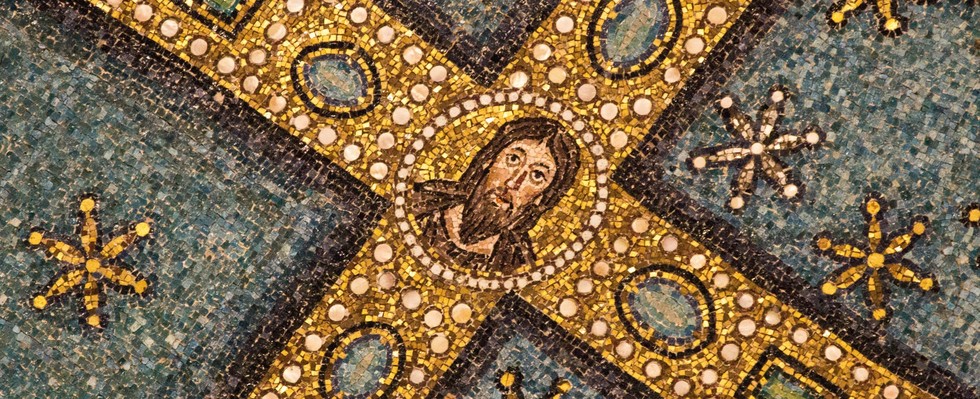Humanum: Made in the Image of God
Leonie Caldecott FAITH MAGAZINE March - April 2015
Last year the much loved Oxford-based Catholic intellectual Stratford Caldecott died of cancer. The journal he launched in his final years, however, continues. Stratford’s widow Leonie now tells Faith magazine why Humanum is an important part of her husband’s legacy.
What does it mean to be human? The question lies at the heart of the anthropological vision of Saint John Paul II, a vision which has done so much to elucidate the immemorial teaching of the Church for the modern world. As he put it in his first encyclical, Redemptor Hominis: “The way of man is the way of the Church.”
In the developed world, we inhabit a culture that is in effect moving towards what C S Lewis called “the abolition of man”. It has therefore become increasingly imperative to develop this contribution of John Paul II’s, which has been developed and confirmed by his successors, for our fast-moving times. There is an urgent need to examine what is happening in the culture through a fully informed understanding of what man is: a creature made in the image of God and thus only fully him or herself in fruitful love.
Thus the Pontifical John Paul II Institute for Studies on Marriage and Family has created the Centre for Cultural and Pastoral Research (CCPR), now under the direction of the PIME missionary priest Fr Fabrizio Meroni, and its online journal Humanum (humanumreview.com). This invaluable resource, which can be accessed free of charge, had as its founding editor my late husband, Stratford Caldecott. Throughout his last illness, from 2011 when he was diagnosed with cancer till close to his death in 2014, Strat poured his considerable editorial experience, not to mention his vision, into Humanum. Now we who remain are carrying the work forward in the same spirit, in a transatlantic partnership made possible both by the internet and by a communion of hearts and minds.
The first issue of Humanum had as its theme “The Child”. This is fitting because the child is the template of what it means to be a human being, in both its potentiality and its extreme vulnerability. As Strat wrote in that first editorial: “We have barely begun to count the cost of the assault on the child, in social let alone in psychological or spiritual terms.”
The CCPR is particularly focused on the needs of the vulnerable, and so this theme has been developed in subsequent issues: “The Children of Divorce” (drawing on an important conference the CCPR organised on the issue), “Assisted Reproductive Technology”, “Same Sex Unions”, “Absent Fathers”, “A Mother’s Work”, “Technology in the Home” and “Home and Neighbourhood”. Most recently Humanum has covered a series of topics relating to modern medicine, culminating in “The Ability of Disability”.
This year Humanum is exploring the theme of education. The first issue, which will go online sometime in March, deals with what it means to educate the person as a human being. The role of the family as the first educator of the child will be examined, as well as the educational theories of St John Bosco, Sofia Cavalletti and Luigi Giussani. The second issue will deal with schooling: what is an authentic pedagogy, the revival of classical education, home-schooling and new types of schools and colleges. The third issue will deal with sex education, and the fourth with education and technology. Running through all the issues is the concept of paideia, education that cultivates the virtues.
Each issue of Humanum contains a background article, and a number of reviews of the relevant literature. Strat believed that we must make a careful and credible case for discerning the meaning of the challenges thrown up by the mainstream secular culture: “There is a place and a time for making a stand, but there is also a place and a time for considered reflection, especially if there may be some hope of attacking the disease at its root. What Humanum, and the CCPR, hope to contribute to this debate, as we survey the vast field of relevant publications, is to establish such a time and a place: an oasis for considered reflection.”
“There is an urgent need to examine what is happening in the culture through a fully informed understanding of man as a creature made in the image of God”
A new development, to be introduced next summer, is ArteFact, which will look at how literature, film, theatre and art in general reflect the crisis of contemporary culture. Questions which the body politic or the academic world are unwilling to confront head-on are often dealt with through the medium of, say, science fiction: think of the Matrix films, or a novel such as Kazuo Ishiguro’s Never Let Me Go.
Each issue of Humanum also reproduces a work of fine art, which carries the resonance of the human spirit that informs the discussion of issues in the journal. For Humanum is concerned with the specificity of human experience, seen through the prism of human culture at its best. Just as Karol Wojtyla undertook a phenomenologically saturated analysis of modern human experience, so must we try to dig deep for an understanding of what is happening under the surface of the events of our own time.
You can visit Humanum at humanumreview.com






